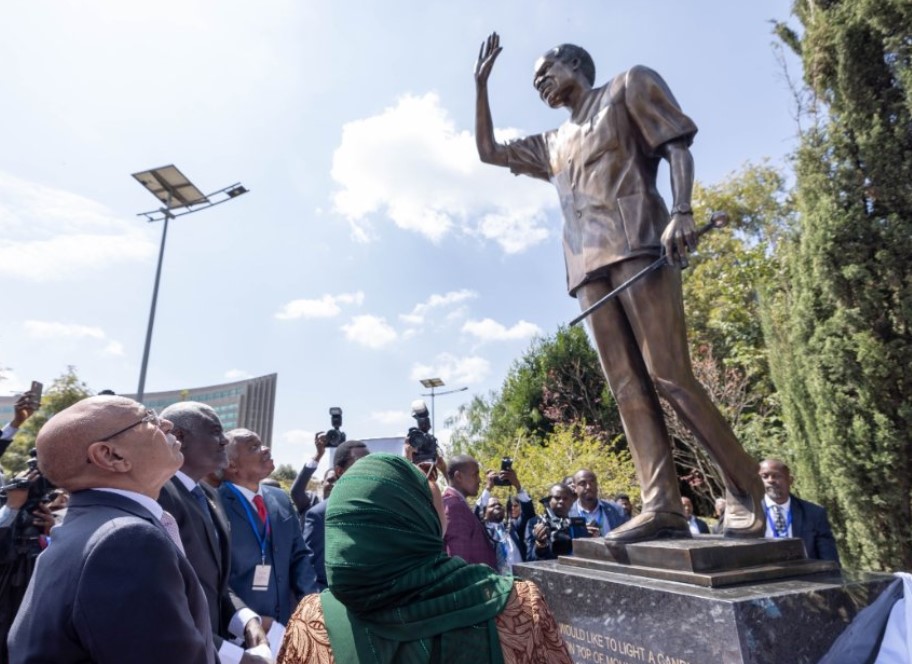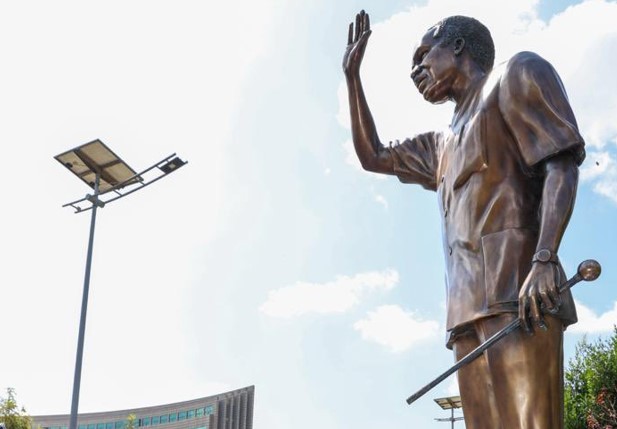Tanzania’s founding father, Mwalimu Julius Nyerere, has been honored with a statue outside the African Union headquarters in Ethiopia’s capital, Addis Ababa.
Speaking when he unveiled the statue at a ceremony attended by numerous African heads of state, AU Commission leader Moussa Faki Mahamat said: “The legacy of this remarkable leader encapsulates the essence of Pan Africanism, profound wisdom, and service to Africa.”
He recalled Nyerere’s own comments at the inaugural OAU summit in 1963. “Our continent is one, and we are all Africans.”

Did you read this?
Nyerere led Tanzania from independence in 1961 until 1985.
He was a committed pan-Africanist and hosted independence fighters opposed to white minority rule in southern Africa.
He played a key role in the creation of the Organisation of African Unity, which later became the African Union
But when he became prime minister of what was then Tanganyika in 1961, his first task was to unite the new country, made up of more than 120 different ethnic groups, including Arab, Asian and European minorities.
He managed to do this, by promoting Swahili as a common language and through his vision of “African Socialism” or ujamaa (familyhood).
In 1964, Tanganyika united with the Zanzibar archipelago to form Tanzania.
Later, it turned into a one-party state. In order to justify the one-party system's importance for stability, Nyerere argued that Tanzanians had a greater degree of freedom under his leadership than they did under British control.
Known for leading a frugal life, Nyerere attempted to establish an equal society through cooperative agriculture, in which farmers collaborated on jointly held property rather than working their own farms.
Instead of Tanzania being dependent on investment and aid from elsewhere, he wanted it to be self-sufficient.
But when he resigned in 1985, Tanzania's economy was in terrible shape and this had mostly failed.
Nonetheless, he oversaw a significant advancement in literacy and healthcare and is still well-regarded in Tanzania.









